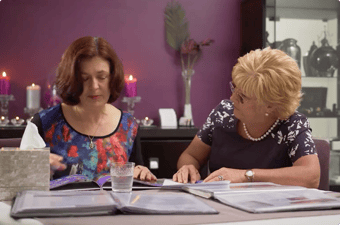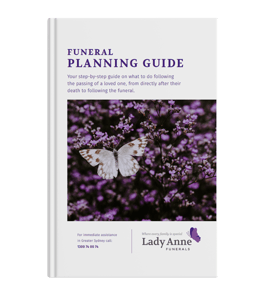It can be impossible to keep a clear head when a loved one passes. If your partner dies, it can be even more difficult to cope with. After the initial shock, there are funeral plans to take care of and preparations for your own future. With that in mind, it's normal to feel a little lost, confused or entirely overwhelmed.
When a partner dies, many aspects of your life may change - such as living arrangements, financial position and even your job. Through the grief, these are the last things you'll want to think about — let alone getting stuck into paperwork. But in order to minimise stress and safeguard your future, it's important that you take care of these practicalities as soon as possible.
To help you through the fog, here's a straightforward checklist of things to update if your partner passes away.
Accounts you need to update when your partner dies
Insurance
If your partner had life insurance, contact their insurance company as soon as possible. They will guide you through the next steps and claim on the policy - which may also cover the costs of a funeral.
This is also a good time to cancel other personal insurance policies which do not apply to you or to shared assets. You should also check whether refunds are available for any pre-paid policies.
Deliveries
If your partner subscribed to regular deliveries of something you no longer wish to receive, now is the time to cancel or modify your membership. This might include anything from magazine subscriptions to wine clubs and grocery deliveries.
Memberships
Are there any memberships to gyms, sports clubs, online services or other organisations that your partner had, which were paid for through direct debit from a joint account? Check your account details online to see if there’s anything you’ve missed — it’s possible that your partner even forgot about these memberships themselves.
Tax
Contact the ATO to arrange a final tax assessment for your deceased partner, if applicable. This statement may be required by lawyers during the execution of the will, in order to correctly distribute remaining assets and wealth amongst beneficiaries.
Social media
It is up to you as to whether or not you keep your partner's social media accounts active online (many people do this for a period to honour and commemorate the deceased). For more information, visit this post we wrote on how to shut down a loved one’s social media account or the help section of each social media platform. Facebook, Twitter and LinkedIn will all have their own processes.
Marketing lists
Remove your partner's name from marketing lists to avoid any unnecessary mail (or upset). You can do this by registering their details on the Association for Data-driven Marketing and Advertising’s website.
If you're getting unwanted phone calls from marketers asking to speak to your deceased partner, you can also request to be put on the 'no call list' to ensure telemarketers do not make any future contact. Or simply register here.
Superannuation
If your partner had superannuation you may be entitled to payments. Contact their superannuation fund to find out whether or not you are eligible.
If you are under severe financial distress due to the passing of a loved one, it's possible to apply for the early release of your own superannuation under compassionate grounds. To find out more, contact your own individual fund.
Government payments
If you receive financial assistance from the government (such as pensions and other Centrelink payments), you must notify them of any changes to your income and assets immediately — otherwise you could be forced to pay money back.
Log into your MyGov account to change your details, or contact the Australian Department of Human Services.
Will
Following the death of your partner, it's likely that your own financial circumstances will change. This may need to be reflected by updating your will. Alternatively, if you have not prepared a will before, this is the time to start thinking about one.
Investment in stocks and bonds
Like any other asset, you may inherit investments - including stocks, bonds and tangible assets such as property. This is usually distributed during the execution of the will. However, if your partner did not update his or her will before they died, there may be items you'll need to chase up.
Debts
Just as you may inherit wealth, you may also be responsible for any debts left behind by your deceased partner. Typically, any outstanding debts are paid off using the individual's assets (their estate), before the remainder of their belongings are distributed amongst the beneficiaries of the will. But you may be financially responsible for paying off debts if you have been named as a joint signatory to the liability (for example, if you had a shared mortgage).
It’s fair to say that life administration is the last thing on your mind when your partner passes away. Nobody is a robot; grieving takes time, and sometimes we need help along the way. That’s why our ladies at Lady Anne Funerals make it their priority to help you through this process. We’ve created a comprehensive checklist of the accounts you may need to close or transfer, which you can download by clicking the image below.









